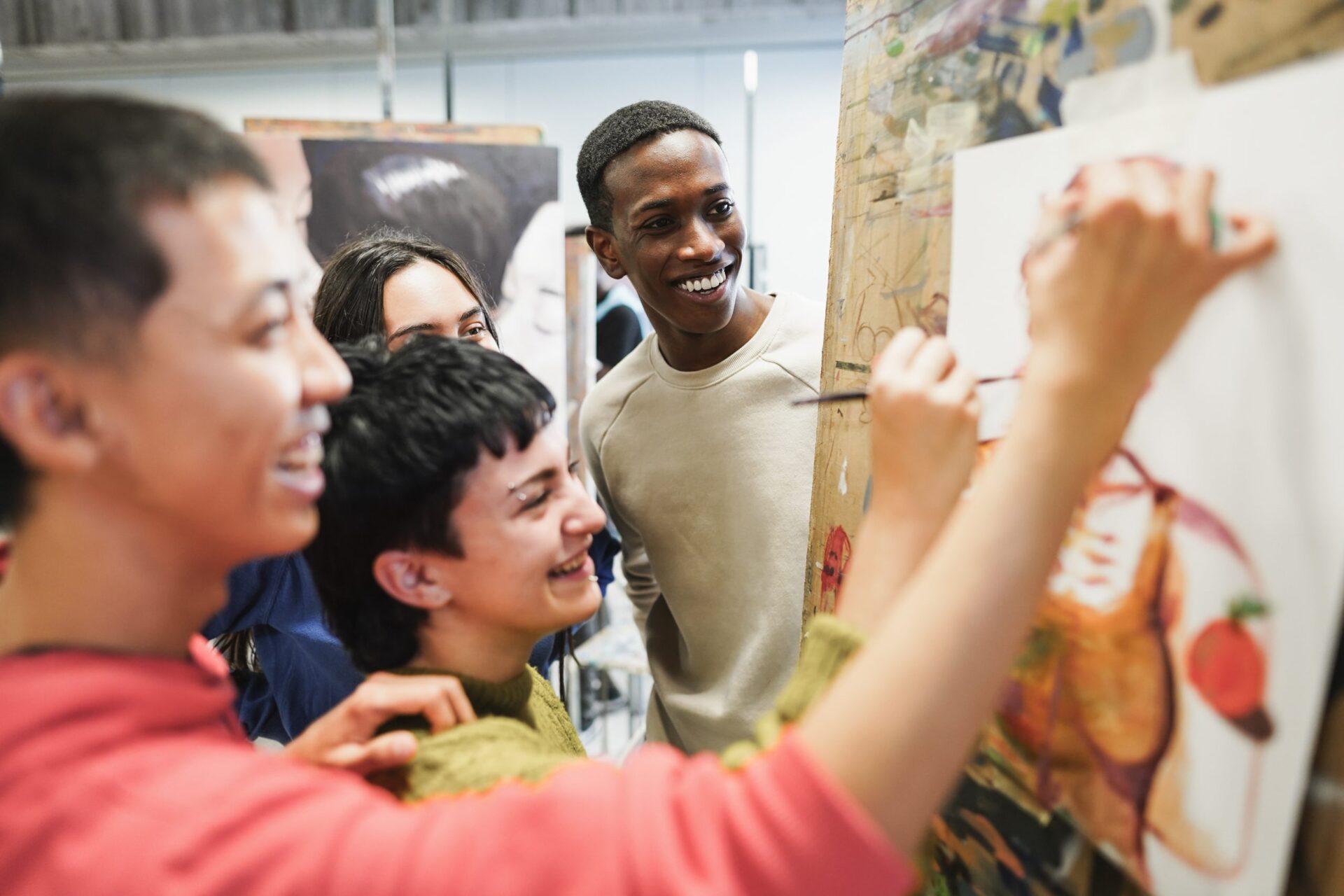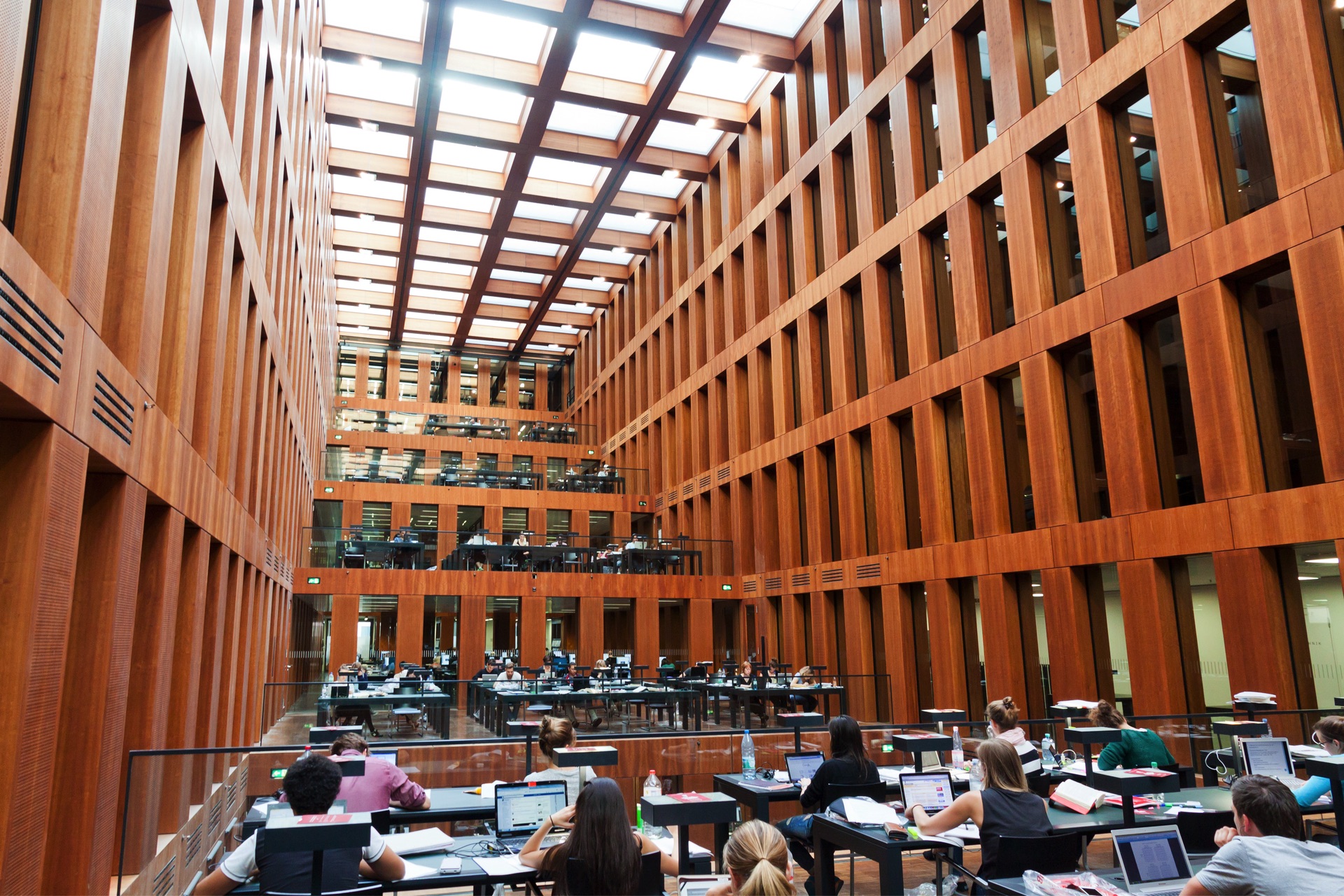Navigating the Journey to a First Ongoing Academic Appointment: A Conversation between two SHAPE EMCRs
Dr Yu Tao is a Senior Lecturer at the School of Social Sciences at the University of Western Australia (UWA) and a member of SHAPE Future’s executive committee. In June 2023, Dr Tao interviewed his colleague Dr Ari Jerrems, a political geographer who joined UWA in early 2023 after a highly competitive selection process. The two early- and mid-career researchers (EMCRs) talked about Dr Jerrems’ journey to his first ongoing academic appointment, the challenges he encountered during the journey, and the reflections and advice he generated through the journey.
The interview took place on UWA’s Crawley campus, which is situated on Noongar Boodjar. The Noongar people remain the spiritual and cultural custodians of their Boodjar, continuing to practise their values, language, beliefs and knowledge. Drs Jerrems and Tao pay their respects to Elders past and present.
Dr Yu Tao: Ari, welcome again to UWA! It is truly lovely to have you as a colleague. Now imagine we were back in the morning or the afternoon of your job interview. Could you briefly overview your primary research area and tell us about your most important current research projects and why they are significant?
Dr Ari Jerrems: Thank you, Yu, for the kind invitation and the introduction. In the broadest sense, my research is concerned with the forces that bring people together and push them apart. I examine this via socio-spatial transformations and bordering practices in contemporary global politics. This contributes to a range of fields across international relations and political geography, including critical security studies, critical border studies, and international relations theory.
Currently, I am working on two projects. One of them is a book titled “The Politics of Neighbouring”, which builds on my PhD thesis. It looks at how socio-spatial transformations in urban spaces intersect with contestation around the limits of political community that I explore through the figure of the neighbour. The figure of the neighbour offers an innovative entry point into thinking about these limits because the neighbour can be both friend or enemy, inside or outside the political community.
I am also collaborating with two research networks that I am a part of: the Australian Critical Border Studies Network and the Political Geography Study Group of the Institute of Australian Geographers. With these two networks, we are working on a range of collaborations around borders and bordering practices. We are preparing a special issue on the world-making power of borders and another one on atmospheric borders, which is still in its early stages.
The Journey to a First Ongoing Academic Appointment and the Obstacles
Yu: That’s wonderful! You mentioned that one of your current projects links with your PhD research. Could you walk us through your academic journey from your PhD studies to your first ongoing appointment, which I assume is this current appointment?
Ari: Sure. It’s quite a long path. I started my PhD research while working as an English language teacher in Spain. I was very interested in questions about borders and bordering already then. In particular, I was interested in the policing of migrant communities in Madrid, where I was living, and I initially sought out opportunities to do a PhD in Spain. However, I transferred to study in Australia later, knowing I had the opportunity to study with high-quality researchers here and that there were limited prospects of securing an ongoing academic appointment in Spain.
So, in 2013, I moved back to Monash University to work with Ann McNevin, a scholar whose work I had been following in the area of critical border studies. I completed my PhD in early 2018. From there, things became quite complicated. First, I moved on to a fixed-term teaching contract for six months. After that, I had a series of casual contracts teaching diverse subjects at multiple universities in Australia as well as working as an RA. I worked at multiple universities, including Monash, ACU, Deakin, Swinburne, and the University of Queensland.
During this time, I applied for a few postdoc schemes and got close on a few occasions, but I didn’t end up securing any postdocs for quite a while. Eventually, a position came up at ANU that was very much in my area of expertise, tied to an ARC Discovery project with Nicolas Lemay-Hebert. That really gave me a boost in terms of doing what was necessary to secure a permanent position – building my experience in research, contributing to publications, and expanding my networks. This all culminated in securing the current permanent position.
Yu: Thanks, Ari! That was undoubtedly a long and fascinating journey! Reflecting on the journey, could you share what you consider to be the most significant challenges you faced during that period?
Ari: Certainly! There were several obstacles, but one of the most prominent was the limited availability of jobs, especially in Australia. Plus, my determination to stay in Melbourne restricted my options. In addition, the global pandemic made the job market even more unfavourable as the already limited opportunities dried up even further. As a result, over the last few years, I’ve noticed that very few permanent positions have been advertised in Australia.
Another significant challenge was the uncertainty that comes immediately after finishing your PhD. While you know that the goal is to secure a permanent job, the route to get there is not always clear unless you take the initiative to discover what steps you need to take and what benchmarks you need to meet to make yourself a competitive candidate. This lack of knowledge, compounded with the pressures of doing numerous casual jobs that demand more time than you’re compensated for, makes it incredibly difficult to strike a balance while striving to hit those targets.
Teaching Smartly, If and Where Possible
Yu: Thank you for sharing that, Ari. Your experience taking on various short-term teaching contracts seems to be an emerging pattern among many ECRs before they eventually secure their ongoing positions. I’d like to hear your thoughts on two aspects of this.
Firstly, as you already alluded, these short-term teaching jobs come with many challenges, including uncertainty, insecurity, and insufficient remuneration. As a political sociologist, I also tend to think that this can lead to unequal power dynamics in the workplace.
On the other hand, teaching is an essential aspect of academia. The reality is that not everyone has the opportunity to gain sufficient teaching experience during their PhD. It’s not just about the number of hours they’ve taught but also the diversity of topics they’ve covered.
Given this, how do you reflect on your journey? What challenges did you encounter, how did you cope with them, and how did you make the most of the less-than-ideal short-term teaching arrangements?
Ari: That is an interesting question. The reality is that only a fortunate few might get an opportunity to do research directly after finishing their PhD. This is often dictated by the type of research they’re doing and whether there are researchers getting grants in that area who might be able to hire them as a postdoc. However, if researchers in your field aren’t securing many grants, then the opportunities are significantly fewer. On the other hand, those research-only ECRs might face the issue of not having accumulated enough teaching experience, despite having a solid publication record.
I think there are many opportunities to do tutoring work, although there are fewer chances to coordinate courses. Around the time I finished my PhD, there were a few more opportunities for casual course coordination, but this quickly dried up. The universities started cracking down on outsourcing units to casual staff, not only because of underpayment but also due to a reshuffling of the labour market.
Securing an opportunity to coordinate courses, if possible, is essential. I was fortunate to be given a chance to run a unit on a fixed-term basis when I first finished my PhD. After that, I did a lot of tutoring but had little chance to coordinate any other units apart from the initial one. So I had to be proactive and seek out the opportunities. The subsequent units I was able to coordinate were actually at ACU, away from Monash, where I’d been doing most of my teaching. So one really has to go out of one’s way to find those opportunities.
Yu: Thank you, Ari, for sharing your insights, which raised two key points warrant further thought. First, anti-casualisation is a good principle, but the sector should look more carefully at nurturing sufficient quality teaching opportunities for ECRs. The second point relates to striking a balance in undertaking teaching roles.
Of course, we must acknowledge that many SHAPE ECRs don’t have the luxury of choosing or balancing their work, as they have immediate financial obligations. However, if people can financially support themselves through other means, it seems there’s a balance to be struck in accepting teaching roles that can genuinely enhance your teaching capacity rather than just adding repetitive labour.
Ari: Absolutely, and I believe my personal circumstances allowed me to achieve this balance to some extent. The fact that I don’t have children, for instance, made a significant difference. Parenthood brings with it time constraints, emotional labour, and various other commitments. On the other hand, not having these commitments provided me with a degree of flexibility in my work. I didn’t always need to over-commit to teaching. I typically took on a lot of teaching in one semester and reduced my teaching load in the next to free up time for unfunded research. This allowed me to develop my publication record, which is an integral part of building an academic career.
Research Networks: Why and How They Are Important
Yu: You mentioned that, after several short-term teaching contracts, your ANU fellowship offered opportunities to develop aspects of your career that were vital for your recent appointment. Could you expand on that?
Ari: Certainly. I believe there were three significant benefits. First, participating in a large-scale research project with international colleagues was a tremendous learning experience. My role involved contributing conceptually, which in itself was important, but the exposure to such a large-scale approach was also highly valued.
The second benefit was its impact on my publication record. While none of the articles we worked on during my postdoc has been published yet – as it was quite recent – the calibre of the publications in the pipeline is quite impressive. I think demonstrating that you have an ongoing project that’s already underway and will be producing results soon is impressive and highly valued. Especially when you’ve been working with someone well-established in the field, it seems more like a ‘sure thing’ to future employers.
Finally, at ANU I received mentorship from top scholars in the field whose advice when applying for jobs and setting priorities was invaluable.
Yu: That’s an excellent point. You’ve highlighted the dual benefits of being part of a professional network – it nurtures your academic record and signals to others that you have a pipeline of outputs. This is particularly crucial when it comes to appointments. Considering this, what advice would you give to early-career researchers, particularly in the SHAPE disciplines, who are still working towards their first ongoing appointment?
Ari: I’d highlight three main points. First, it’s essential to understand the “game” – know the job market, what employers are looking for, and what you should prioritise to build the track record needed for an ongoing appointment. Second, personal relationships matter. Your reputation as a good colleague and how well you’re known in the field can make a difference. Finally, fostering relationships not just with senior colleagues but also peers in similar situations is key. Solidarity and a support network can be of immense help when dealing with challenges.
Yu: This discussion reminds me of how important initiatives like the SHAPE Futures are in fostering these relationships and support networks. Thank you, Ari, for sharing your wisdom!
Ari: My pleasure. Thank you, Yu!
You may also be interested in…
View all storiesStay informed
We send our members updates on news, advice, resources, events and much more straight to their inbox. Enquire about joining our network to get be involved.
Acknowledgement of Country
The Australian SHAPE EMCR Network recognises Australia’s First Nations Peoples as the Traditional Owners and custodians of this land, and pays respect to Elders past and present. We acknowledge the continued cultural and spiritual connections to Country and community.



